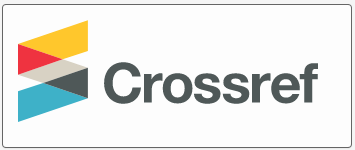აგრესიიის სოციალურ-ფსიქოლოგიური ფაქტორი მოზარდებსა და ზრდასრულებში თანამედროვე საზოგადოებაში
DOI:
https://doi.org/10.52340/idw.2023.82საკვანძო სიტყვები:
პირდაპირი აგრესია, ირიბი აგრესია, ემოციური აგრესია, ინსტრუმენტული აგრესია, ფრუსტრაციული თეორია, სოციალურიდ ასწავლის თეორიაანოტაცია
თანამედროვე საზოგადოების სოციალური და ფსიქოლოგიური ყოფის მნიშნვნელოვანი ფაქტორის-აგრესიის პრობლემის კვლვა მოზარდებსა და ზრდასრულებში ჩვენი ქვეყნის ჯანსაღი მომავალი თაობის აღზრდისა და ზოგადად მაღალგანვითარებული კეთილშობილი საზოგადოების ჩამოყალიბების ერთ-ერთი საფუძველთაგანია. მისი შესწავლა-ანალიზი და დაძლევის პერსპექტივები მრავალ მეცნიერულ დისციპლინას აერთიანებს, გეზის მიმცემი მათ შორის კი არის ფსიქოლინგვისტიკა, სოციოლინგვისტიკა და კულტუროლოგია. აგრესიის სახეობები, კონტექსტები, ორპოლუსიანი მიმართებები და, რაც მთავარია, მეტად დატვირთული კლასიფიკაციური ბადე საკლველვი პრობლემის ნათელ სურათს იძლევა და ხელს უწყობს მისი დაძლევის გაცნობიერებული მეთოდოლოგიის შექმნა-ჩამოყალიბებას. რთული სოციალური გარემოს კომუნიკაციურ-პრაგმატული მიმართებები და ყოველი ხალხის/ეთნოსის ფსიქიკა-ფსიქოლოგია მეტად რთულია, იგი სხვადასხვა სუბსისტემების კონგლომერატია.
##plugins.generic.usageStats.downloads##
წყაროები
Anderson, C. A./ Bushman, B. J. (2002): Human aggression. In: Annual Review of Psychology, 53, 27–51.
Joh. Engelkamp /Wilhelm Fink Verlag, München 1974, S. 14, 23-28
Heinrich Löffler /Germanistische Soziolinguistik, Erich Schmidt Verlag 2005, S. 35-40,79-90
Reiner Dietrich / Psycholinguistik, Metzlerische Buchhandlung 2002, S. 20-44
Baker, J. A. (2006): Contributions of teacher-child relationships to positive school adjustment during elementary school. In: Journal of School Psychology, 44, 211–229.
Baker, J. A. (2006): Contributions of teacher-child relationships to positive school adjustment during elementary school. In: Journal of School Psychology, 44, 211–229.
Barth, J. M./ Dunlap, S. T./ Dane, H./ Lochman, J. E./ Wells, K. C. (2004) Classroom environment influences on aggression, peer relations, and academic focus. In: Journal of School Psychology, 42, 115–133.
Bibou-Nakou, I./ Stogiannidou, A./ Kiosseoglou, G. (1999): The relation between teacher burnout and teachers’ attributions and practices regarding school behaviour problems. In: School Psychology International, 20, 209–217.
Boulton, M. (1994): How to prevent and respond to bullying behaviour in the junior/ middle school playground. In: Sharp, S./ Smith, P. K. (Eds.): Tackling bullying in your school: A practical handbook for teachers, 103–132. London: Routledge.
Boulton, M. J. (1997): Teachers’ views on bullying: Definitions, attitudes and ability to cope. In: British Journal of Educational Psychology, 67, 223–233.
Camodeca, M./ Goossens, F. A./ Meerum Terwogt, M./ Schuengel, C. (2002): Bullying and victimization among school-age children: Stability and links to proactive and reactive aggression. In: Social Development, 11, 332–345.
Cicchetti, D./ Hinshaw, S. P. (2002): Prevention and intervetion science: Contributions to developmental theory. In: Development and Psychopathology, 14, 667–671.
Fergusson, D. M./ Horwood, L. J./ Ridder, E. (2005): Show me the child at seven: The consequences of conduct problems in childhood for psychosocial functioning in adulthood. In: Journal of Child Psychology and Psychiatry, 46, 837–849.







